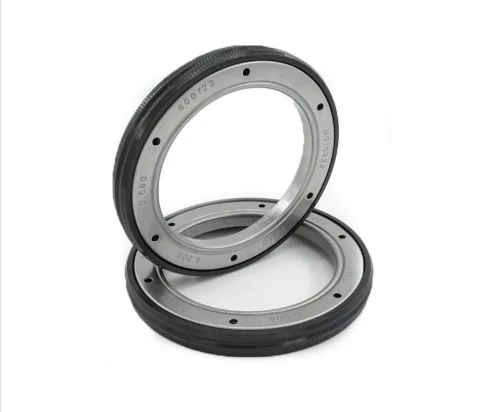sump crush washer
Understanding Sump Crush Washers An Essential Component in Fluid Systems
In the realm of engineering and fluid dynamics, the sump crush washer plays a critical role in ensuring systems operate efficiently and without leakage. While it may appear to be a simple component at first glance, its design and functionality are pivotal in a variety of applications, particularly in automotive and industrial systems.
What is a Sump Crush Washer?
A sump crush washer, often referred to simply as a crush washer, is a type of sealing washer that is used to create a tight seal between two mating surfaces. Typically, these washers are made from soft materials such as aluminum or copper, which allows them to deform under pressure. This unique characteristic is essential for filling gaps and imperfections on the surfaces they are sealing.
When a bolt or nut is tightened, the crush washer is compressed. This compression not only creates a more reliable seal but also accommodates any future changes in pressure or thermal expansion within the system. This prevents fluid leaks, which can lead to operational failures or even hazardous situations in more sensitive applications.
Applications of Sump Crush Washers
Sump crush washers are predominantly utilized in various automotive applications, especially in oil sump plugs, where they prevent oil leaks that could otherwise lead to engine failure. In modern vehicles, oils and fluids are crucial for maintaining optimal performance and preventing wear and tear. A leak could decrease the efficiency of the vehicle and, in worst-case scenarios, cause catastrophic engine failure.
Moreover, these washers are extensively used in industrial machinery, hydraulic systems, and any application where fluid retention is essential. For instance, in hydraulic systems, the proper functioning of sump crush washers can significantly influence the performance of the machinery, as any fluid leakage can lead to loss of pressure and subsequent malfunction of hydraulic equipment.
sump crush washer

Material Considerations
The choice of material for sump crush washers is vital for their performance. Aluminum washers, being lightweight and resistant to corrosion, are often used in applications requiring resistance to oil and heat. Copper, while more malleable, provides better thermal conductivity and is commonly found in high-temperature applications. The selection of the appropriate material depends on the specific requirements of the application, including temperature tolerance, pressure, and the type of fluids being sealed.
Installation and Maintenance
Proper installation of sump crush washers is critical to their effectiveness. They should always be replaced during any maintenance or service that involves removing screws, bolts, or plugs to ensure a reliable seal. It is crucial to follow the manufacturer’s guidelines regarding torque specifications when tightening fasteners to avoid excessive crushing that can compromise the washer’s integrity.
Regular maintenance checks are also advisable to ensure that the washers are not experiencing wear or fatigue. Signs of leakage around a joint may indicate that a crush washer has reached the end of its lifecycle and needs replacement. By proactively managing the condition of these washers, system integrity and performance can be upheld.
Conclusion
Sump crush washers are often underestimated in terms of their importance within mechanical systems. However, their role in preventing leaks and ensuring fluid integrity cannot be overlooked. Understanding the function, applications, and necessary maintenance involved with these components is essential for engineers, mechanics, and anyone involved in fluid dynamics. By recognizing their significance, we can enhance the reliability and longevity of the systems that rely on these crucial yet humble washers.
-
Simplifying Oil Changes: A Comprehensive Guide to Oil Drain Plugs and Their Variants
News Aug.04,2025
-
Mastering Oil Drain Maintenance: Solutions for Stripped, Worn, and Upgraded Oil Plugs
News Aug.04,2025
-
Fixing Oil Pan Plug Issues: Leaks, Stripped Nuts, and the Right Replacement Solutions
News Aug.04,2025
-
Everything You Need to Know About Oil Drain Plugs: Sizes, Fixes, and Upgrades
News Aug.04,2025
-
Choosing the Right Oil Drain Plug: A Guide to Sizes, Materials, and Drain Innovations
News Aug.04,2025
-
A Complete Guide to Automotive Drain Plugs: Types, Problems, and Innovative Solutions
News Aug.04,2025
-
The Ultimate Guide to Car Repair Kits: Tools and Essentials Every Driver Should Own
News Aug.01,2025
Products categories















